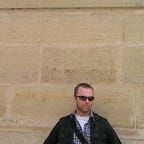The Truth of Memory
Last week I attended a Canadian International Council chat on the rise of Western Populism; one of the speakers was Bob Rae, former Premier of Ontario, former Interim Leader of the Liberal Party of Canada, author, public speaker, negotiator, etc.
The conversation landed on truth, and in particular, the notion of “my truth.” Rae went on at length that he dislikes the notion entirely; that if we don’t accept that there is one, objective truth, then we’re rejecting that anything can be known at all. We simply can’t all have our own truths, or the concept of truth is meaningless.
Rae’s position stuck in my craw, for reasons which I’ll get into shortly.
I agree, 100%, that there is one, objective truth that underlies all understandings and memories — I just don’t think it’s something we can access easily.
I also think it’s dangerous for those in positions of power to be so dismissive of the “truths” of other people, as Rae was.
Yes, there is an objective truth, but when you’re the majority, or in a position of power, and you hold fast to there being just one objective truth that can be easily understood, you run the risk, intentionally or not, of assuming what you see as true must be right, and anything that challenges that understanding is a false narrative.
What if you, or the majority, have it wrong? What if both parties have some elements right and some elements wrong? To dismiss the idea that truth as we perceive it can be tainted is contrary to all evidence and, in positions of speaking truth to power, problematic.
All this was on my mind again this morning as I listened to Malcolm Gladwell’s podcast episode Free Brian Williams, which delves deep into the unreliability of memory. In that episode, Gladwell talks about how remembering something differently than it happened doesn’t necessarily mean someone is a liar, but that they’re human.
The human brain isn’t a library, or a catalogue of perfectly-recalled incidents; memories are more sketches of experiences infused with interpretation than rote recordings.
The picture above is of my grandfather, Ed Carter-Edwards, a World War II veteran and survivor of Buchenwald Concentration Camp. I have heard him tell his story of what happened to him in the Camp hundreds of times, and he shared that story thousands of times more — with friends, family, at schools, synagogues, in documentaries, etc. CBC’s The National did a good summary version of his story, which you can watch here.
As I research that story, trying to find as much documentation to ground it as I can, I come across the odd inconsistency. My grandpa remembers a heroic French Doctor secretly, and at great risk to his own life, saving him by using a needle to extract fluid from his lungs.
The problem with this narrative is that there is an official medical record of all treatment my grandpa received in the camp, even including an X-Ray. If the doctor in question was truly risking his life by helping my grandfather, it seems unlikely he would have recorded his efforts so rigorously.
Was my grandpa lying? Not at all. He was pulling out a recollection of a horrible time in his life, and memory of a time when he was so sick that he was at death’s door. Over the intervening years, he has heard other narratives of what happened in Buchenwald’s infirmary, and those stories probably fused with his.
Here’s where my concern kicks in.
If we stick to the notion that there is but one truth, and everything that is not that is a false narrative that should be rejected entirely, we put ourselves at risk of throwing out the historical baby with the bathwater — and at a time when nationalism and xenophobia are on the rise, that is particularly troublesome.
There isn’t a Holocaust survivor left alive today who has a perfect, untainted memory of their experience. To think otherwise is ridiculous; memory simply doesn’t work that way. If you take Rae’s position that “my truth” is a false narrative if it diverges with an absolute truth, though, you make it easier for those who want to ground a different interpretation of history — like, say, that the Holocaust was exaggerated by parties with vested interests — to twist narratives to their advantage.
History is like Rashomon; it relies on modern interpretation of the recounting of events that happened that few people were actually present for, and those who were present almost certainly recalled with some memory drift.
The best way to get close to the truth is to listen to as many people as possible, with an open mind. Even then, you’re not likely to land on an objective truth, but a deeper understanding of what an incident meant to the people involved.
At least, that’s my opinion.
